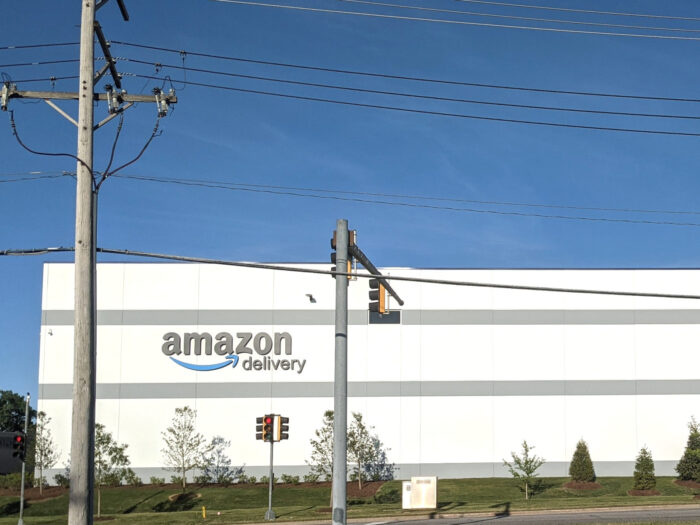
Amazon’s organizational culture (company culture) enables business capacity for responding to opportunities in the market for retail and e-commerce, artificial intelligence, information technology and cloud computing, consumer electronics, entertainment content production and distribution, and other goods and services.
Through its company culture, Amazon sets the traditions and values that influence its employees’ workplace behaviors. For example, Amazon’s corporate culture pushes employees to go beyond traditional limits and conventions to develop ideas and solutions.
As the world’s top-performing online retailer, the company continues to seek fresh talent. However, to maintain a capable workforce, Amazon must reinforce its organizational culture to shape the development of human resources for long-term competitive advantage.
Amazon’s business culture facilitates knowledge-sharing to keep the technology business and its human resources competitive in the face of rapid innovation, especially among the major competitors in the industry.
Amazon’s organizational culture is a business success factor. Cultural traits of the company’s human resources define effective organizational capabilities. Thus, this work culture reinforces the competitive advantages described in the SWOT analysis of Amazon.
Through the workforce, this business culture keeps Amazon competitive against IT and consumer electronics firms, like Google (Alphabet), Apple, Microsoft, and Samsung, as well as retail and e-commerce firms, such as Walmart, Costco, Home Depot, Aldi, and eBay.
This company culture also supports Amazon’s entertainment content production and streaming/distribution business against Netflix, Disney, Sony, and Facebook (Meta Platforms). Amazon’s work culture empowers competitive advantages and corresponding financial performance.
Features of Amazon’s Organizational Culture
Amazon is known for a corporate culture that pushes employees to explore ideas and take risks. This organizational culture is, in part, responsible for the company’s capacity to seek business opportunities to utilize data-intensive processes and IT assets to provide efficient online services.
Amazon states that it is a company of pioneers that make bold bets and invent on behalf of customers, focusing on success based on what is possible. This statement shows that Amazon’s organizational culture has the following characteristics:
- Boldness
- Customer Centricity
- Peculiarity
Boldness. Amazon promotes boldness among its workers. This characteristic of the corporate culture is seen in how the company initially endeavored to sell a wide array of items online, initially starting with books, through data-intensive information technology.
Also, Amazon’s employees are encouraged to take risks, such as in considering new ideas for the business. In emphasizing boldness, the company’s work culture facilitates openness toward new ideas based on an organizational diversity policy.
This trait of the organizational culture enables Amazon to develop new solutions and products that are better than those that are currently available in the market. This cultural trait also helps the company in solving problems or challenges in its business processes.
With new ideas and solutions, boldness supports innovation, which is a factor in the product-development goals involved in Amazon’s generic competitive strategy and intensive growth strategies.

Additionally, this trait of the company culture motivates workers to contribute new business ideas that directly address industry trends, such as the technological and social trends included in the PESTEL/PESTLE analysis of Amazon.
Through boldness as a trait, this work culture strengthens human resource creativity and innovative capabilities for the company’s competitiveness in the international market for IT, consumer electronics, retail, and online services.
Customer Centricity. Amazon’s mission statement and vision statement highlight the centrality of customers in the business, and the significance of management support for employees’ ability to provide high-quality service to customers. This factor is included in the company’s organizational culture.
For example, Amazon encourages workers’ focus on customers’ preferences and expectations. The company continually strives to determine trends and changes in consumer demand and preferences and applies these changes in its HRM programs, such as for online retail and related services.
Through customer centricity as a trait of its corporate culture, Amazon maintains its effectiveness in satisfying customers as the business expands and diversifies well beyond retail, e-commerce, and online services.
Peculiarity. Amazon’s organizational culture also involves peculiarity. This cultural characteristic refers to the idea of challenging conventions. For example, Amazon motivates its employees to view themselves and their work as different from conventional ways of doing business.
The company believes that conventions impose limits on potential business growth. Thus, through this feature of its workplace culture, Amazon motivates employees to think outside the box to bring the IT, entertainment, and e-commerce and online services business to its maximum potential.
Amazon’s Company Culture: Implications, Advantages & Disadvantages
Amazon’s organizational culture reinforces the company’s pioneering efforts in its online business, as initiated with the vision of Jeff Bezos. This company culture implies creativity for innovation that revolves around the goal of customer satisfaction.
Support for innovation is an advantage of Amazon’s company culture. For example, boldness and peculiarity promote innovative ideas to improve Amazon’s information technology and online service business.
Another advantage of this organizational culture is its focus on the customer, ensuring that Amazon satisfies customer expectations and preferences. Customer satisfaction drives revenues and the market competitiveness of the company’s various goods and services.
These traits of the company culture promote human resource development necessary for protecting the business against the effects of the tough competition described in the Five Forces analysis of Amazon.
This business culture supports the organizational development of Amazon and its subsidiaries, like Whole Foods Market. The traits of Amazon’s company culture encourage innovation and uniqueness for these subsidiaries’ business competitiveness and development.
However, a disadvantage of Amazon’s organizational culture is that it imposes a strain on human resources, especially in pushing employees to take a bold and non-conventional approach to doing their jobs.
Nonetheless, through support for cooperation among divisions and teams, Amazon’s corporate structure (business structure) helps reduce the effects of this disadvantage of the company culture on workers.
References
- Amazon.com, Inc. – Form 10-K.
- Amazon.com, Inc. – Leadership Principles.
- Amazon.com, Inc. – Our Employees.
- Amazon.com, Inc. – Our Workplace.
- José, D., Palma-Moreira, A., & Au-Yong-Oliveira, M. (2025). Organizational culture and perceived performance: Mediation of perceived organizational support and moderation of motivation. Administrative Sciences, 15(8), 307.
- U.S. Department of Commerce – International Trade Administration – Retail Trade Industry.
- U.S. Department of Commerce – International Trade Administration – Software and Information Technology Industry.
- Wyland, R., Hanson-Rasmussen, N., & Clark, F. (2024). The structure-culture alignment activity: Aligning organizational structure elements with diversity, equity, and inclusion cultural values. Journal of Management Education, 48(1), 141-167.